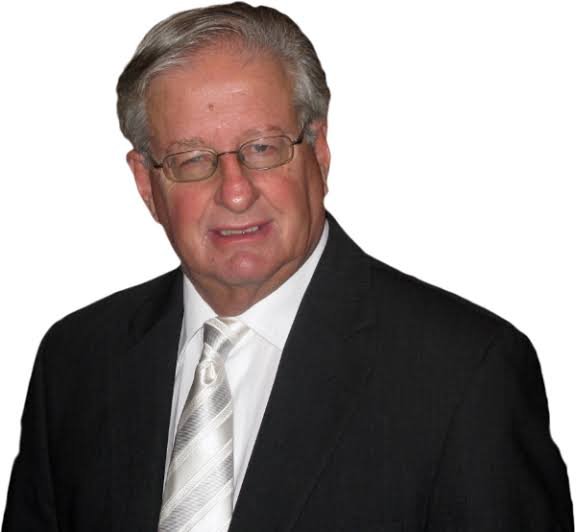Dr. Zhu’s Academic Foundation
Dr. Zhu’s journey in the realm of mental health and sports psychology is firmly rooted in a robust academic foundation. She obtained her doctoral degree from the esteemed University of Vienna, a renowned institution known for its rigorous academic standards and distinguished contributions to the fields of psychiatry and psychology. The University of Vienna has long been recognized for fostering a deep understanding of human behavior and mental health, placing Dr. Zhu in an intellectually stimulating environment conducive to her professional development.
During her time at the university, Dr. Zhu was greatly influenced by several key figures in the field of psychology. Among them was Professor Karl Andersson, a leading expert in sports psychology, who emphasized the significance of mental resilience in athletic performance. His mentorship enabled Dr. Zhu to explore innovative methodologies to enhance athletes’ mental conditioning and emotional well-being. Furthermore, her interaction with Professor Eva Weber, a specialist in cognitive behavioral therapy, provided her with invaluable insights into therapeutic techniques that can be harnessed to address mental health challenges faced by elite athletes.
Dr. Zhu’s academic experience at the University of Vienna not only shaped her theoretical understanding of psychology but also equipped her with the practical skills necessary to apply this knowledge in a real-world context. Immersed in a diverse student body and collaborative learning environment, she was encouraged to exchange ideas and engage in research that highlights the multifaceted nature of mental health in sports.
Overall, Dr. Zhu’s education has laid a strong foundation for her pioneering work in mental health within elite sports, allowing her to approach the complexities of athletes’ psychological well-being from a well-rounded and informed perspective.
Mentor Influence on Dr. Zhu’s Research
Dr. Zhu’s journey into the realm of sports psychology has been significantly shaped by her relationships with esteemed mentors, most notably Professor Gerhard Lenz, Donard Meichenbaum, and John Heil. Each of these influential figures has contributed uniquely to her academic development, providing guidance that would profoundly impact her approach to mental health in elite sports.

Professor Gerhard Lenz, a pioneer in integrating psychological theory with athletic performance, encouraged Dr. Zhu to explore the intricate relationship between mental health and sports. His emphasis on a holistic understanding of athletes inspired Dr. Zhu to develop her research with an emphasis on addressing the emotional and psychological needs of individuals in competitive environments. Under his mentorship, she learned the importance of considering the athlete’s perspective, advocating for a more person-centered approach in sports psychology.
Donard Meichenbaum, renowned for his work in cognitive-behavioral approaches, provided Dr. Zhu with innovative strategies for empirical research methodologies. His mentorship reinforced the significance of evidence-based practices within sports psychology, allowing her to ground her research in rigorous, scientific principles. This foundation helped Dr. Zhu understand the complexities of athletes’ mental health, leading her to develop interventions that are not only effective but also empirically validated.
John Heil, known for his contributions to the understanding of mental skills training, further enriched Dr. Zhu’s research framework. His insights into the psychological challenges that athletes face encouraged Dr. Zhu to explore the importance of resilience and mental preparedness. By integrating these concepts, she has been able to create a more comprehensive view of the mental health landscape within elite sports.
Through the guidance of these mentors, Dr. Zhu has emerged as a leader in the field of sports psychology, utilizing her cultivated theoretical knowledge and person-centered empirical focus to address the mental health of athletes effectively.
Dr. Zhu’s Contributions to Sports Psychology
Dr. Zhu has significantly influenced the field of sports psychology through her extensive professional journey, marked by both innovative practices and impactful interventions aimed at enhancing mental resilience among elite athletes. Her academic background laid a strong foundation, allowing her to work with leading international institutions, where she developed evidence-based strategies tailored for Olympic athletes. These strategies not only focus on performance enhancement but also prioritize the athletes’ mental well-being, an essential aspect often overlooked in the competitive sports arena.
One of Dr. Zhu’s key contributions to sports psychology is her research on mental resilience, which demonstrates how athletes can effectively manage stress and pressure during high-stakes competitions. By employing techniques such as visualization, mindfulness, and cognitive restructuring, she equips athletes with the tools necessary to maintain peak performance levels, even when faced with adversity. Her initiatives have led to a paradigm shift in the way mental health is perceived within elite sports, highlighting the importance of psychological readiness in complementing physical training.
Throughout her career, Dr. Zhu has collaborated with numerous national teams, providing them with tailored psychological support. Her work with Olympic athletes has garnered recognition, as she has played a pivotal role in preparing them for competition both mentally and emotionally. This approach has not only improved individual performance outcomes but has also contributed to broader discussions on the necessity of mental health resources in sports. Furthermore, the successful application of her interventions has served as a continuous learning experience, enabling her to develop her own practice and adapt strategies based on the evolving needs of elite athletes.
Dr. Zhu’s enduring commitment to advancing mental health practices in sports psychology has made a lasting impact, advocating for holistic approaches that integrate physical and mental training, thereby inspiring a new generation of sports psychologists.
Dr. Zhu as a Thought Leader in Mental Health Research
Dr. Zhu has established herself as a prominent figure in the realm of sports psychology, particularly in the area of mental health research. Her extensive body of work, which includes numerous publications in reputable academic journals, has significantly advanced the discourse surrounding athletes’ mental health and well-being. Through her rigorous research methodologies and comprehensive analyses, Dr. Zhu has shed light on the unique psychological challenges faced by elite athletes, addressing issues such as performance anxiety, emotional resilience, and burnout.
What distinguishes Dr. Zhu as a thought leader in this domain is her commitment to integrating sports psychology with psychotherapy. She recognizes that the mental demands placed on athletes necessitate a holistic approach to mental health care. By collaborating with professionals across various disciplines, Dr. Zhu has developed frameworks that provide athletes with tailored support systems. Her innovative research explores how psychological interventions can enhance not only athletic performance but also overall mental health stability, empowering individuals to thrive both on and off the field.
Additionally, Dr. Zhu’s dedication to disseminating knowledge is evident in her active participation in conferences and workshops, where she shares her findings and insights with both practitioners and researchers. By publishing work that emphasizes the importance of mental health resources within elite sports, Dr. Zhu advocates for the necessity of accessible support systems for athletes. This steadfast commitment aligns with her mission to ensure that mental health is prioritized alongside physical training, thereby transforming the landscape of mental health care in sport. Her contributions have not only positioned her as a leading authority in sports psychology but have also forged pathways for future inquiry and practice in the field.


